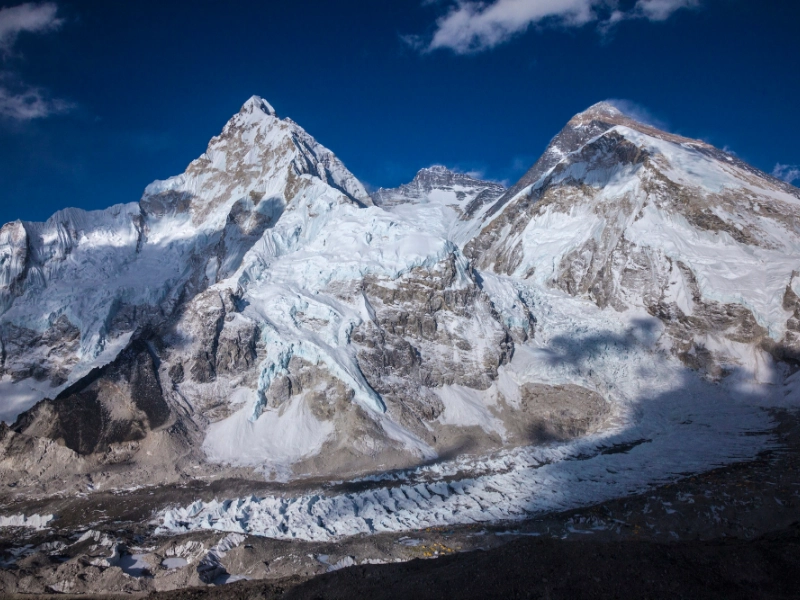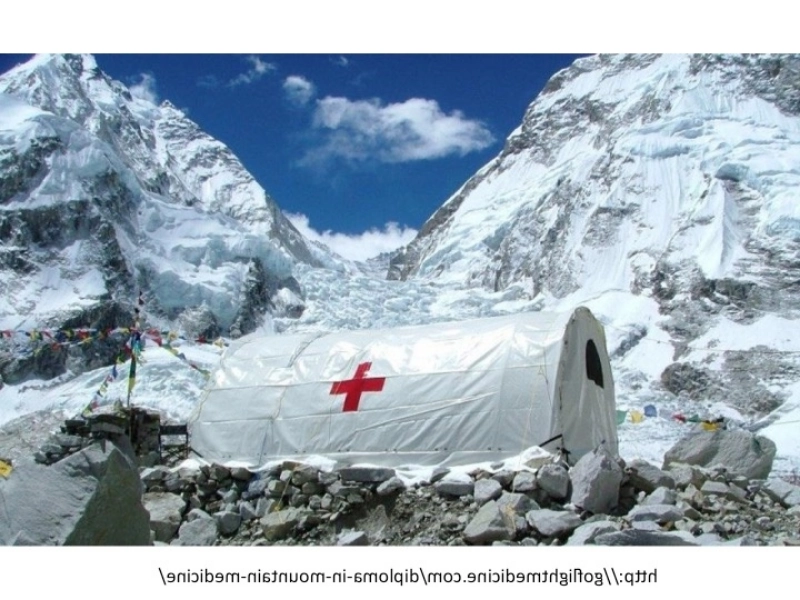A straightforward reason for why aging occurs more quickly at higher elevations is Einstein's Theory of Relativity. This is predicated on the notion that time passes more quickly the closer you get to something. In fact, this impact has been detected by scientists using extremely precise atomic clocks. Researchers discovered that residents of skyscrapers on the upper floors age somewhat more quickly than those on the lower floors.
 Higher elevations result in a drop in air pressure, which reduces the amount of accessible oxygen. In order to compensate, you're compelled to breathe faster and deeper, which increases the risk of heart and lung issues. At higher altitudes, some people struggle more than others.
People who have spent a significant amount of time living at altitude are more adapted to the reduced oxygen levels. For example, highland and Tibetan Plateau populations have genes that facilitate rapid oxygen uptake. In order to provide blood that contains more oxygen to their muscles, they also have larger arteries and capillaries.
However, residing at an altitude does not offer protection from pre-existing ailments. For instance, the incidence of cancer and respiratory diseases is higher at altitude, as are the fatality rates from influenza, pneumonia, TB, and suicide. Having a healthy physique and enough red blood cells to carry oxygen to your organs is the only way to ward off these diseases.
Higher elevations result in a drop in air pressure, which reduces the amount of accessible oxygen. In order to compensate, you're compelled to breathe faster and deeper, which increases the risk of heart and lung issues. At higher altitudes, some people struggle more than others.
People who have spent a significant amount of time living at altitude are more adapted to the reduced oxygen levels. For example, highland and Tibetan Plateau populations have genes that facilitate rapid oxygen uptake. In order to provide blood that contains more oxygen to their muscles, they also have larger arteries and capillaries.
However, residing at an altitude does not offer protection from pre-existing ailments. For instance, the incidence of cancer and respiratory diseases is higher at altitude, as are the fatality rates from influenza, pneumonia, TB, and suicide. Having a healthy physique and enough red blood cells to carry oxygen to your organs is the only way to ward off these diseases.
 The delivery of oxygen to the muscles is necessary for them to produce energy during exercise. The muscles will tense up and spasm without it. When at altitude, this can be more risky, especially if HAPE symptoms are present.
Thankfully, the body can gradually adapt to reduced oxygen concentrations. For this reason, it's crucial to provide enough time before traveling to high altitudes. Drink lots of fluids and engage in moderate-intensity exercise. Refrain from smoking and using depressants, as these habits can worsen AMS symptoms by lowering breathing during sleep.
Living at higher elevations is more natural to certain people than to others. At these elevations, some even flourish. However, it might lead to a number of medical and psychological problems for people who are not used to these circumstances. For instance, a study discovered that women who reside in high altitudes had reduced hormone concentrations, which are essential for preserving youth and health.
The delivery of oxygen to the muscles is necessary for them to produce energy during exercise. The muscles will tense up and spasm without it. When at altitude, this can be more risky, especially if HAPE symptoms are present.
Thankfully, the body can gradually adapt to reduced oxygen concentrations. For this reason, it's crucial to provide enough time before traveling to high altitudes. Drink lots of fluids and engage in moderate-intensity exercise. Refrain from smoking and using depressants, as these habits can worsen AMS symptoms by lowering breathing during sleep.
Living at higher elevations is more natural to certain people than to others. At these elevations, some even flourish. However, it might lead to a number of medical and psychological problems for people who are not used to these circumstances. For instance, a study discovered that women who reside in high altitudes had reduced hormone concentrations, which are essential for preserving youth and health.
 Even the healthiest people may experience physiological difficulties at high elevations. The body raises blood pressure and heart rate in response to the drop in oxygen molecules. This explains why a lot of people have headaches, dyspnea, and insomnia at high elevations. Acclimatization properly entails beginning at a lower altitude and gradually increasing it over time in order to prevent it.
Scientists have shown that time moves a little faster at higher altitudes using cesium atomic clocks. Gravity is the cause of this since it affects objects farther from the ground less strongly. This also holds true for aircraft and space rockets.
Gravity causes you to age a little faster than someone who lives on the top floor of a building if you reside on the lowest floor. At high altitudes, though, it will take some time to genuinely see any discernible aging variations.
Even the healthiest people may experience physiological difficulties at high elevations. The body raises blood pressure and heart rate in response to the drop in oxygen molecules. This explains why a lot of people have headaches, dyspnea, and insomnia at high elevations. Acclimatization properly entails beginning at a lower altitude and gradually increasing it over time in order to prevent it.
Scientists have shown that time moves a little faster at higher altitudes using cesium atomic clocks. Gravity is the cause of this since it affects objects farther from the ground less strongly. This also holds true for aircraft and space rockets.
Gravity causes you to age a little faster than someone who lives on the top floor of a building if you reside on the lowest floor. At high altitudes, though, it will take some time to genuinely see any discernible aging variations.
 Regular exercise has been shown to prolong life, prevent chronic illness, and slow cognitive aging. It has also been demonstrated that getting enough sleep is essential for mental and physical fitness. It is therefore not surprising that studies have shown that individuals who get less than six hours of sleep each night experience a faster aging process with respect to their whole cognitive function.
The body needs time to adjust to the lower concentration of oxygen molecules at greater elevations. On the other hand, if you ascend too quickly, you run the risk of experiencing altitude sickness (HAPE). When exposed to high altitudes, the body's first reaction is to release endoplasmic peptide (EPO) into the bloodstream, which starts the process of erythropoiesis, or the bone marrow's generation of red blood cells. This causes an increase in blood viscosity, or thickening of the blood, as well as an increase in hemoglobin and hematocrit levels, which raise your VO2max. Increased blood viscosity can cause HAPE, a deadly condition, and hypoxia.
Regular exercise has been shown to prolong life, prevent chronic illness, and slow cognitive aging. It has also been demonstrated that getting enough sleep is essential for mental and physical fitness. It is therefore not surprising that studies have shown that individuals who get less than six hours of sleep each night experience a faster aging process with respect to their whole cognitive function.
The body needs time to adjust to the lower concentration of oxygen molecules at greater elevations. On the other hand, if you ascend too quickly, you run the risk of experiencing altitude sickness (HAPE). When exposed to high altitudes, the body's first reaction is to release endoplasmic peptide (EPO) into the bloodstream, which starts the process of erythropoiesis, or the bone marrow's generation of red blood cells. This causes an increase in blood viscosity, or thickening of the blood, as well as an increase in hemoglobin and hematocrit levels, which raise your VO2max. Increased blood viscosity can cause HAPE, a deadly condition, and hypoxia.